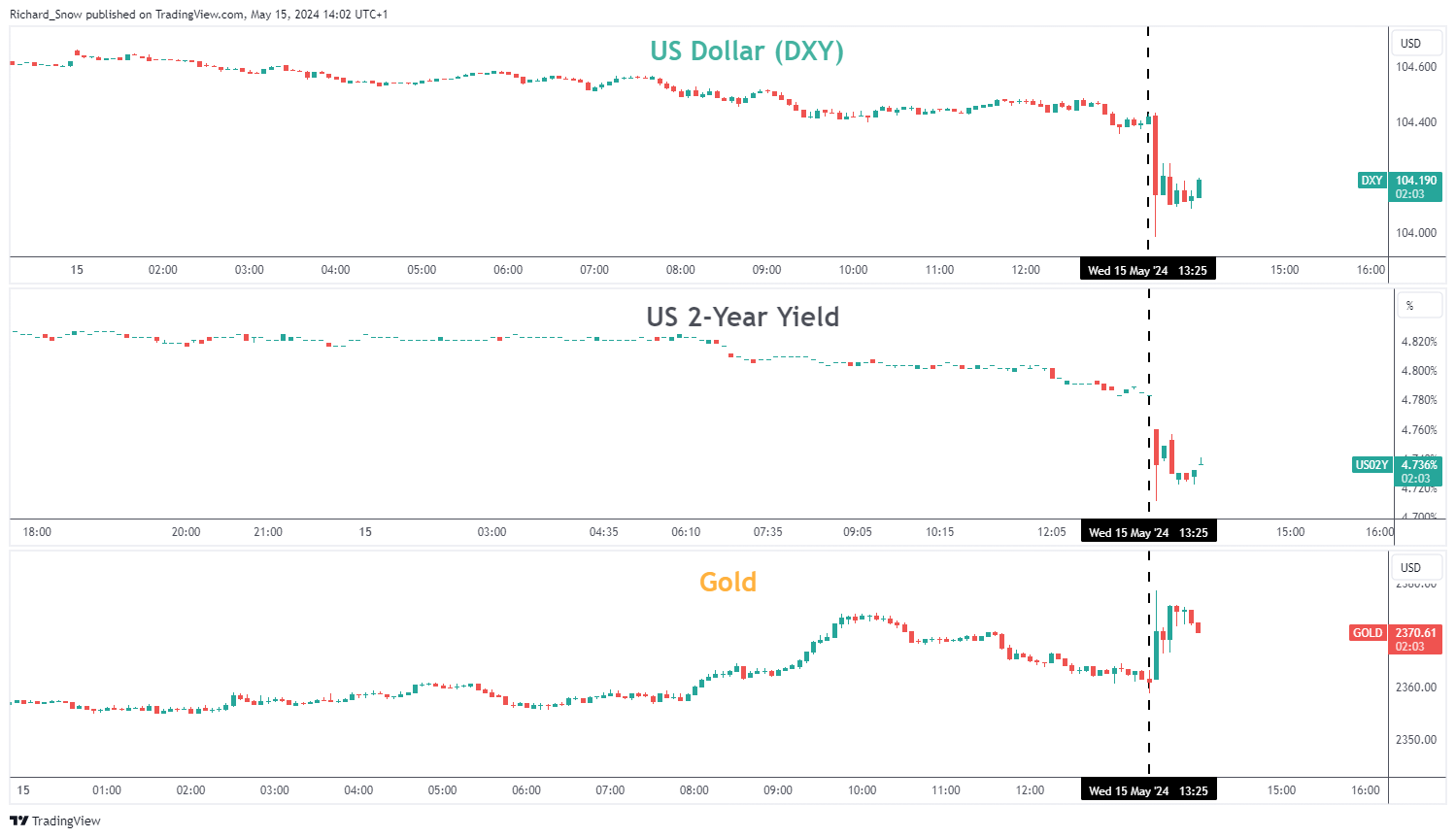US Disinflation Process Gets Back on Track but Progress is Minimal
Headline and core CPI printed inline with estimates of 3.4% and 3.6%, respectively. The April data sees a return to the disinflation process after a period of stubborn price increases that characterised the first quarter of the year.

Monarch Capital Institute
Learn how to setup ahead of high impact news and data with this easy-to-implement process
The last two months have produced hotter-than-expected monthly rises in both core and headline CPI, denting Fed confidence around the timing and magnitude of interest rate cuts in 2024. 3 and 6-month average measures of inflation have also revealed a concerning rise in general price pressures which has forced market participants to withdraw rate cut bets, leaving the dollar vulnerable to a correction.
Ahead of the US inflation data, surveys like the University of Michigan Consumer Sentiment survey and New York Fed survey now see 1-year ahead inflation rising compared to prior estimates. In addition, yesterday’s PPI data printed hotter-than-expected. Jerome Powell, the Fed Chairman, commented that he felt the PPI data was ‘quite mixed’
A big theme within the Fed has been the issue of ‘confidence’. Recent, higher inflation prints have dented the Fed’s collective confidence, most likely requiring a number of lower inflation prints before the committee feels confident to make that first rate cut which the market envisions may take place in September, with a second potentially in December, making sure to avoid the November presidential election.
Multi-Market Price Reaction
US Dollar (DXY)
The US dollar eased, continuing the broader bearish trend. The dollar has sold off on the back of the 1st of May FOMC meeting and the softer US labour data that ensued since. Easing in the job market and moderating economic growth have began to set the scene for the rate cut debate but inflation remains the primary target for the Fed. Keep in mind that retail sales data was released at the same time and underperformed rather notably compared to the prior figure.
US 2-Year Yield
2-year yields are sensitive to the Fed’s rate setting policy and witnessed a move lower on the softer inflation data.
Gold
Gold benefitted moderately from a drop in US yields and the dollar. The precious metal is not an interest bearing asset meaning a lowering in yields lowers the opportunity cost of holding gold.
Multi-Asset Market Reaction


